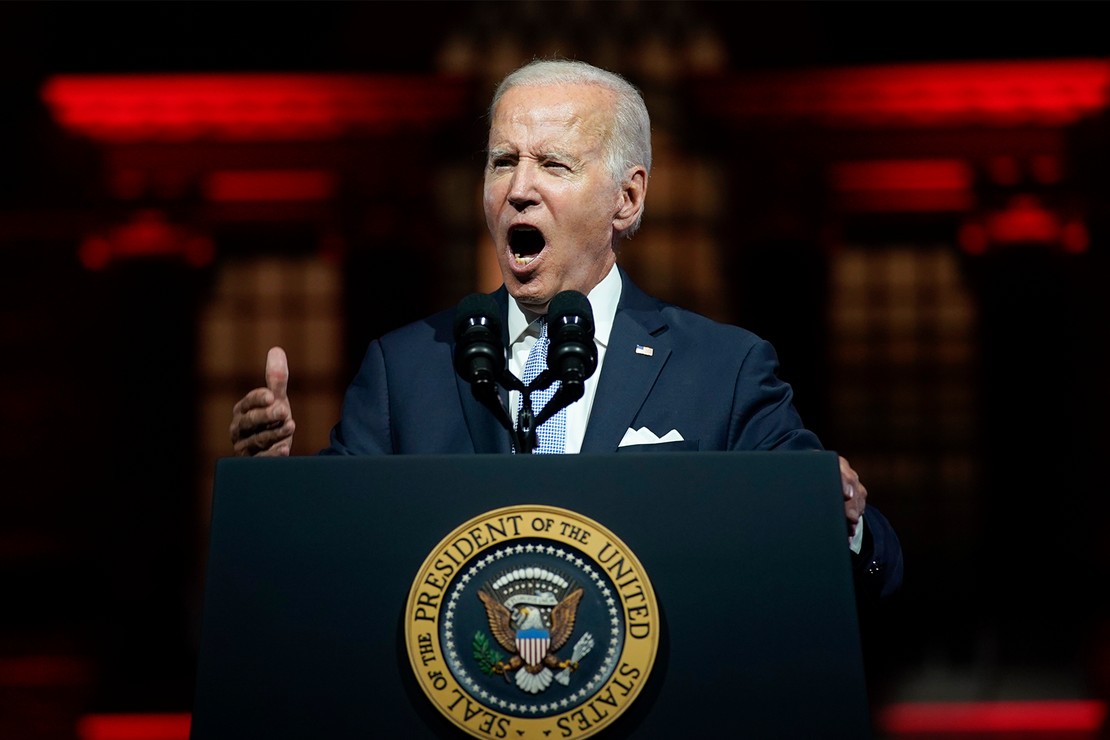
Will a federal judge intervene to stop a clearly unconstitutional attempt by Joe Biden to bypass Congress and appropriate hundreds of billions of dollars by diktat to buy votes in the election? Or will the judge stand on narrow definitions of standing to bypass the issue, even with states demanding an intervention?
I know which way I’m betting, but I’m willing to be pleasantly surprised:
A federal judge in Missouri is set to hear arguments Wednesday on whether to stop the Biden administration from moving forward with plans to cancel up to $20,000 in student loan debt for more than 40 million people.
Legal experts say the case, one of several lawsuits to end the policy, may pose the greatest threat of delaying or halting the implementation of the program.
At the moment, it’s the sole case left standing from initial suits against Biden’s action. Two previous efforts got thrown out over standing, although in both cases the federal judges allowed the plaintiffs to refile amended complaints to address that issue. One from Pacific Legal Foundation still looks promising, but we’ll see what happens in the next hearing.
Today’s hearing should give the six states suing the Department of Education enough standing to matter, even though that doesn’t actually address the most egregious aspects of the Academia bailout:
Missouri Attorney General Eric Schmitt (R) said the Missouri Higher Education Loan Authority, a quasi-state outfit that owns and services FFEL debt, would be deprived of ongoing interest payments if borrowers consolidated en masse. He claims the company would also lose revenue from servicing Direct Loans — those made and owned by the federal government — that are wiped away.
Widespread consolidations of would also mean Nebraska, which invests in securities backed by privately held federal student loans, could lose interest income generated by the securities, argues Nebraska Attorney General Doug Peterson (R) in the complaint. He said Biden’s plan could cut that market in half.
READ RELATED: Transgender Midterms Ballot Issue Confuses Nevadans—and Half of Republican Voters
In order to establish standing, plaintiffs have show a direct and unavoidable harm. To get an injunction, they have to show that the harm will be immediate and irrevocable. PLF had such an argument for their client based on his tax liability, only to have Biden change the rules suddenly and arbitrarily to exclude his standing claim.
That will likely backfire on Biden if the states can get standing. Part of all of the lawsuits are allegations that the administration failed to comply with the Administrative Procedure Act, which lays out a very clear compliance regime. The HEROES Act on which Biden based this action has an explicit waiver from the APA on some aspects, but not this kind of rulemaking. The states can argue that the capricious nature of these rules, coupled with the hasty manipulation of them to game the court system, practically screams for judicial intervention.
Charles C.W. Cooke thinks the decision should be more basic than that. Will a federal judge act as though the US Constitution matters? That’s the question:
The only “threat” in this case is to Article I of the U.S. Constitution. If the judge can read, the order will be struck down. If he can’t read, it won’t. As the Post notes:
“Amid the legal challenges, the administration has held off on releasing an application for the forgiveness program.”
A clean decision will ensure that those applications are never issued.
Indeed. The Constitution puts the power of appropriations in the legislature, not the executive, for obvious reasons. A president who can appropriate funds on his own is a president that can ignore Congress altogether and rule by executive fiat — a status that not only threatens Congress but the independent judiciary of Article III as well. The judge in this case should consider that when fussing over standing, and should issue an injunction against Biden’s attempts at creating an imperial presidency immediately.
Stay tuned. My hopes are not high on this, but I’d be happy to be proven wrong.
Source:





